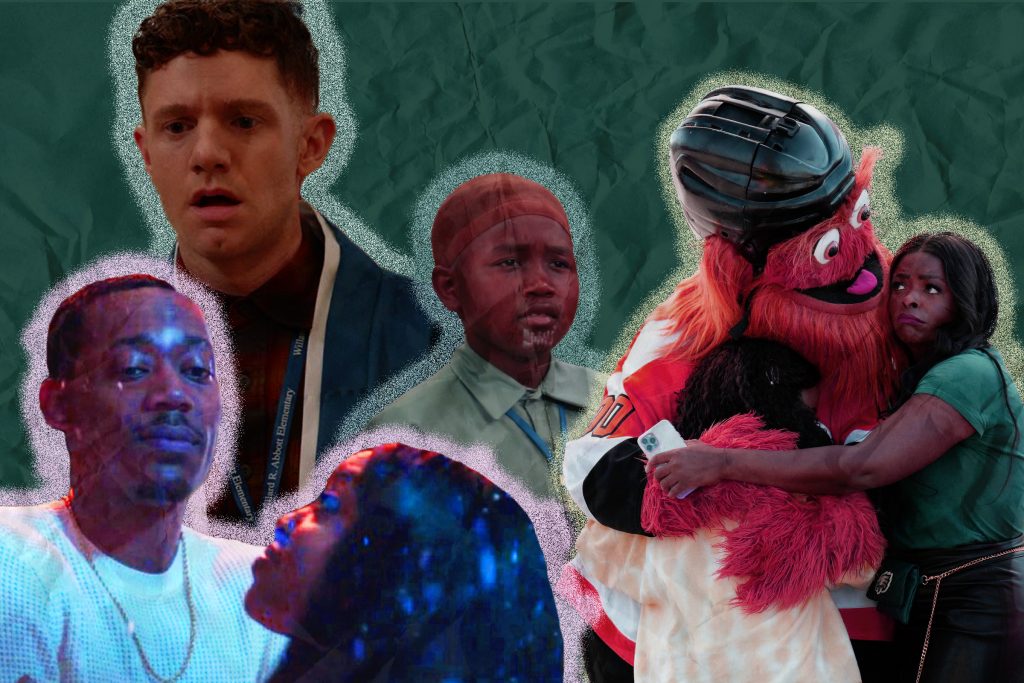Why “Abbott Elementary” is the most relevant workplace mockumentary on TV right now

ABC’s hit series “Abbott Elementary” has been a consistent crowd-pleaser since its premiere in December 2021. After only a season and a half, the series has already been appropriately awarded with quite a few Emmys and Golden Globes. Last fall, “Abbott Elementary” actress Sheryl Lee Ralph become the first Black woman in 35 years to win an Emmy for Best Supporting Actress in a Comedy Series for her portrayal of Barbara Howard, a character that creator Quinta Brunson holds close to her heart.
Brunson, who stars in the series as second grade teacher Janine Teagues, shared in an interview that her mom’s own experience teaching kindergarten for forty years is what inspired her to write a comedy series that sheds light on the reality of the Philadelphia public school system. Barbara Howard of “Abbott Elementary” is not only Janine’s biggest role model, but she’s also the character inspired by Brunson’s mother.
“Abbott Elementary” gives viewers an accurate portrayal of all the best (and worst) parts of working at an underprivileged school in America. And for that reason, the series is — without a doubt — the most relevant workplace mockumentary on TV right now. After diving into a brief history about the workplace mockumentary itself, we’ll ultimately see that “Abbott Elementary” is more evolved than its predecessors due to its positive approach to comedy within a school system that continues to bring so much negativity.
We cannot say enough great things about this cast! 🙌 Congratulations to the #AbbottElementary casting department for their #Emmy win for Outstanding Casting For A Comedy Series! #Emmys pic.twitter.com/c71fuFhu4W
— Abbott Elementary (@AbbottElemABC) September 5, 2022
“Abbott Elementary” is yet another mockumentary-style sitcom to hit our television screens within the last twenty years. Some of these shows have been better than others, but ultimately, audiences love this genre because of their casual filming style — which makes us feel like we’re a part of the action ourselves — and their ability to develop characters and their feelings through one-on-one interviews. But you can’t talk about the art of a mockumentary series without first talking about “The Office.”
Although the series is probably the most iconic of its genre, “The Office” wasn’t the first TV show to use this storytelling style. According to an article published by The Ringer titled “The rise and fall of the mockumentary sitcom,” “The original, British version of ‘The Office’ began airing just three months after “Trailer Park Boys” (which was the first example of the modern mockumentary as we know it) in 2001.” At the same time, the nation’s favorite new guilty pleasure — reality television — was in full effect, with “Survivor” and “Big Brother” premiering the year before.
The article explains that these shows “introduced a new visual vernacular to consumers and creators alike: dirt-cheap digital photography and one-on-one interviews between cast members and producers, spliced into the main action through the magic of editing. The former device gave an immersive feel, stripping away the artifice of glossy production values; the latter gave contest and comedic potential, an attribute seized on by reality editors and actual comedians.”
But one thing that continually sets “The Office” apart from other mockumentaries is its ability to create humor within a mundane yet relatable setting: the average nine-to-five workplace. And what makes these workplace mockumentaries so exceptional are the spot-on characterizations of workplace stereotypes. Stephen Baker, a writer for ScreenRant, notes that although the characters of “The Office” are totally exaggerated, “for the most part, they are accurate portrayals of characters who would have an office-based job at a place like Dunder Mifflin.” Any real office worker knows these people, and that’s what makes these characters so funny and relatable to their audience.
Life comes at you fast. pic.twitter.com/b93CpzWYGF
— The Office on Peacock (@theofficetv) July 18, 2022
For this reason, “The Office” became the blueprint for pretty much every mockumentary that came afterward, whether it had to do with the workplace or not. The genre’s most notable successor, “Parks and Recreation,” became a favorite for audiences looking for a change of pace from the dry humor of “The Office.” Eventually, the characters working as government employees in small-town Pawnee, Indiana quickly became just as lovable as those working at the Dunder Mifflin office in Scranton, Pennsylvania.
However, the reality is that some aspects of these early 2010 mockumentary classics haven’t aged well. In an article titled, “How ‘Abbott Elementary’ evolves the mockumentary sitcom,” Britt Cannon writes that “whether it’s Leslie Knope’s white-feminist brand of social consciousness” or “‘The Office’s’ near-constant problematic jokes at the expense of the more marginalized characters, there’s a lot to improve upon.”
Cannon also notes that “even the way ‘Parks and Rec’ treats Jerry Gergich and ‘The Office’s’ Toby Flenderson turns even their more altruistic characters into bullies.” “Abbott Elementary,” however, “accomplishes being funny without crossing the line into mean” and “pushes itself to not use meanness as a crutch.” And what better place to practice kindness than at an elementary school? After all, Ms. Teagues doesn’t sport that “kindness” necklace every week for nothing.
Always exceeding our expectations ❤️ #AbbottElementary pic.twitter.com/YvzAkcFEAu
— Abbott Elementary (@AbbottElemABC) November 17, 2022
But “Abbott Elementary” isn’t just a more politically correct version of “The Office” or “Parks and Rec.” It’s so much bigger than that. Cannon writes that “‘Abbott Elementary’ provides a very honest glimpse into what teachers actually do — everything from the work, the pay, the problems [and] the emotional labor … and that feels important and relevant, especially right now.”
Shortly after the premiere of “Abbott Elementary’s” second season in September 2022, an article published by DeadAnt opens with: “People might have forgotten over the last couple of years, but there was a time when kids physically went to school.”
Although most of our kids are physically in school again, it’s no secret that the sudden quarantining, masking and social distancing due to the pandemic in 2020 left us yearning for community and familiarity in any form that we could get it. Especially if the form included sitting on our couches and watching fictional characters navigate what we understood as “the real world” before everything shifted.
With that being said, maybe a show like “Abbott Elementary” could have done just as well if it came out a year and a half earlier. It would have acted as a great escape from our quarantines, it would’ve cracked plenty of relevant jokes in the process, and it still would’ve shed light on the issues that underprivileged schools continue to face on a daily basis. But whether it was Brunson’s intention or not, the release of “Abbott Elementary” came at a perfect time. This workplace mockumentary is more relevant now than ever in a post-pandemic world that’s begging for a reformed school system.
In December 2022, an infographic posted to a popular Instagram account called @impact highlighted a new bill, proposed by Representative Frederica Wilson, that would raise teachers’ minimum salaries to $60,000. Which — if you know anything about how little teachers actually make in this country — is a huge deal. But the infographic notes that this bill “aims to curb the teacher shortage crisis in the U.S.,” and that according to a report published by the National Education Association, “600,000 educators have quit since January 2020.”
The infographic goes on to explain a few reasons why so many American teachers are quitting their jobs — the most obvious reason being that teachers are severely underpaid, of course, which is something that the teachers of “Abbott Elementary” reference all the time. But one of the other reasons that the infographic touches on is a direct result of the pandemic.
@Impact notes that “teachers are burnt out by the pandemic” and that “in the past two years, they’ve switched back and forth between virtual and in-person instruction, taught while experiencing pandemic-related stress, worried about COVID exposure at school, and operated in ‘survival mode’ daily.” That sentence alone makes me want to quit a teaching job that I don’t even have. But these factors have ultimately left our nation’s teachers “overwhelmed and exhausted,” which isn’t surprising in the slightest.
Another reason for the teacher shortage crisis in the United States, according to @impact, is that “staffing shortages force teachers to take on extra work when co-workers quit or are out sick.” These pressures that come with being employed at an understaffed school are something that “Abbott Elementary” has touched on quite a few times since its release. The show most notably does this in Episode 9 of Season 2, when Principal Ava Coleman (played by Janelle James) is forced to find a last-minute substitute teacher for Ms. Teagues’ class amidst a county-wide sub shortage. When Ava is forced to step into the role herself after exhausting all her options, she learns that monitoring a classroom full of second graders isn’t nearly as easy as she assumed it might be.
This theme of staffing shortages is something that we see from the very first episode of “Abbott Elementary” — and if there’s anything good that could come out of such an easily ignored issue in our education system — at least it’s fan-favorite Gregory Eddie, played by Tyler James Williams (who won a Golden Globe for his performance). The entire existence of Mr. Eddie’s character is due to a pressing need for a long-term sub after one of Abbott’s teachers is suddenly fired after a physical altercation with a student. This, however, only happens after Janine urges Ava that she can’t keep letting the school janitor fill in as an educator.
If only we were all as honest as Mr. Johnson. 💀 pic.twitter.com/FoKIHQ5t8U
— Abbott Elementary (@AbbottElemABC) December 3, 2022
On its surface, this seems like a bizarre joke — that someone like Mr. Johnson (the janitor) would be asked to fulfill such a crucial role with absolutely no background in teaching. But unfortunately, this is a very real issue that countless American schools are currently facing. According to the @impact infographic, “College students in Arizona are now allowed to teach in classrooms,” and the state of Florida is currently “asking veterans with no teaching background to step in and teach.” Desperate times do, indeed, call for desperate measures.
One of the main reasons why a workplace mockumentary about an elementary school is so important right now is because our nation’s teachers are continually taken for granted. Most of the issues that Abbott Elementary faces on a daily basis aren’t anything new to the American public school system, and it seems that little to no progress has been made within the last few decades. Teachers, of course, bear the brunt of these issues worse than anyone.
To make matters worse — we realized that we took teachers for granted in 2020 when children were forced to learn from home during the pandemic. During that time, countless parents of elementary school-aged children struggled to keep it all together, yet they still found time to beg their Facebook friends to remember to thank a teacher during these trying times. “Abbott Elementary” continues to show us that even though the pandemic is on its way out, these times are more trying than ever for our nation’s teachers.
Thanks to Quinta Brunson, it seems that the art of the workplace mockumentary isn’t going anywhere anytime soon. “Abbott Elementary” perfectly encapsulates all the worst parts of working at an underprivileged school in the best way possible. Its predecessors may not have aged well, and of course, it’s possible that “Abbott Elementary” may not age well either in the next ten years or so. But at the very least, I hope that this is because our teachers of the future will finally have such an abundance of compensation and support, that implying any alternative reality on national television would be an outrage.




















